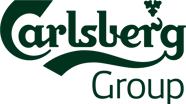
 Snap Pack. An innovation to reduce plastic
Snap Pack. An innovation to reduce plastic
We’re always looking to minimise our environmental impact without compromising on the quality of our beers. Using a revolutionary new glue, Snap Pack cuts plastic usage on multipacks by up to 76%, leading the way in ground-breaking innovations.
In 2019 we rolled out Snap Pack across Denmark, Estonia, France, Germany, Latvia, Lithuania and the UK. By reducing our use of fossil-fuel based packaging materials, it lowers the CO2 of our products and cuts plastic waste.
Other areas of innovation include introducing recycled content shrink wrap in Denmark, Norway and Sweden. Currently containing 50-100% recycled plastic, we are working with partners to test the inclusion of more and different types of recycled plastic.


We also cut the carbon impact of PET bottles in Norway and Sweden. There, we introduced 100% recycled PET on 0.5 litre and 0.65 litre Imsdal water bottles. We also reduced the weight of other PET bottles, saving 550 tonnes of virgin PET material.
Finally, our Green Fibre Bottle project unveiled two prototypes in 2019, taking us one step closer to creating the world’s first biobased “paper” beer bottle in the future.


Other examples of how we will reach ZERO carbon footprint by 2030

Lightweighting our cans
Our cans are getting lighter and so is their environmental footprint. Over the last three years, we have worked with Ball to cut the weight of our most common can formats by around 5% in more than ten European markets. This lightweighting is shrinking our value chain carbon footprint by around 5,000 tonnes per year.

First heavy duty electric trucks
In 2020, the first of our electric 26-tonne trucks was delivered, following the contract we agreed with Renault Trucks in 2019, to make important steps in the transformation of urban transport.

Going for 1.5˚C
It’s been a big year for 1.5°C. At this critical time for the planet, media coverage has been unprecedented and there was an affirmed commitment at COP25. Our sustainability ambitions at Carlsberg are aligned to the most ambitious science-based target of 1.5°C above pre-industrial levels, going beyond the Paris Agreement’s base level.
Central & Eastern Europe and India
-
Azerbaijan
-
Belarus
-
Bulgaria
-
Croatia
-
Estonia
-
Greece
-
Hungary
-
India
-
Italy
-
Kazakhstan
-
Latvia
-
Lithuania
-
Serbia
-
Ukraine

